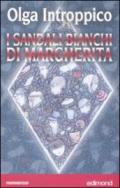
Moving in a narrow space. Towards a new mobility
Federico Parolotto
The pursuit of acceleration, often manifested in such projects as Hyperloop trains launched inside pressurised tubes, still continues to seduce us today. 3D animations invite us to imagine a world in which futuristic technologies will permit us to travel ever faster and ever further – everything coordinated by digital environments. Our continuous consumption of space through the compression of time is no longer tolerable, as we are reminded by the renowned professor of sustainable development, John Whitelegg. The energy and material consumption necessary to ensure the mobility of people and goods has contributed, and is continuing to contribute, to the various crises afflicting the planet, from the loss of biodiversity to harmful gas emissions. Moving ever more frequently and ever faster is not only taking us further away from an ecological transition, but in recent decades it has led – above all because of the automobile – to a rising sprawl, with the subsequent loss of the relationship of proximity, contributing to a slow social atomisation. That is why we need to radically change the way we move; and it is in this regard that the present book seeks to offer a little guidance in the great transformation of contemporary mobility, providing tangible examples of transformation in Moscow, Paris, Milan and Barcelona. New forms of mobility have to become a central part of our densely populated cities and the low-density urbanised territories. It is a challenge that we can and must overcome – together.
Al momento non disponibile, ordinabile in 3 settimane circa
Dettagli Libro
- Titolo: Moving in a narrow space. Towards a new mobility
- Autore: Federico Parolotto
- Curatore:
- Traduttore:
- Illustratore:
- Editore: Quodlibet
- Collana: Quodlibet studio. Città e paesaggio. Saggi
- Data di Pubblicazione: 2024
- Pagine: 144
- Formato: Brossura
- ISBN: 9788822921680
- Architettura - Storia e studi dell'architettura
Libri che ti potrebbero interessare

Caro diario
Agnoletti Alessandra

Due passi avanti appena
Maiotti, Francesco M.

Chiamatemi pure nonna. Il disagio del ca...
Ceriani, M. Grazia

I sandali bianchi di Margherita
Introppico Olga

Fantastella
Venarucci Carla

Giacomo Leopardi è la tentazione di Bud...
Caldarone Nicola

Come gli uomini vedono le donne
Bini Vittorio

Mestra... guardami! Esperienze, vissuti,...
Intelisano Maria

Cervelli allo spiedo
Tony Golia

Il paese doppio. Questione atlantica e q...
De Angelis, Giancarlo

Il teatro di Fernando Arrabal. Studio e ...
Damiano A., Zigrino

La giraffa Matalà ovvero del DNA intopp...
Teresa Gambuli






